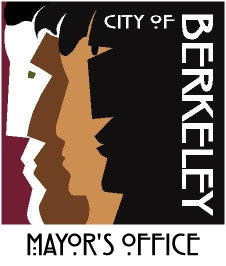Berkeley Mayor Introduces Innovative First in State Housing Policy
February 20, 2020
Flanked by tenant activists and affordable housing nonprofits, Berkeley Mayor Jesse Arreguín announced this afternoon the introduction of the Tenant Opportunity to Purchase Act (TOPA).
“We have a housing crisis and the public expects us to take bold action to fix it,” said Mayor Jesse Arreguín. “There are growing inequities in the rental market born of speculation and greed, and we must level the playing field if we’re going to turn the corner on housing affordability and its nexus to homelessness. TOPA is an important part of a suite of strategies Berkeley is employing to help make that happen.”
TOPA empowers tenants by giving them the right of first offer and right of first refusal on the property they live in when an owner is ready to sell. Tenants can also assign their rights to a qualified affordable housing developer to purchase on their behalf. Additionally, if tenants decide to forgo their TOPA rights, affordable housing developers can step in to purchase the property under a subordinated right to purchase. Altogether, these rights provide a way to stabilize existing housing for tenants and preserve affordable housing in Berkeley while also creating pathways for tenants to become first-time homeowners. TOPA will apply to all rental properties in Berkeley, subject to a number of exemptions, including owner-occupied Single Family/Owner Occupied properties, including those with an ADU or other secondary dwelling unit.
The proposal comes after years of research by organizations such as the East Bay Community Law Center (EBCLC), who were the primary drafters of the ordinance and worked with the Mayor’s Office, in consultation with the Bay Area Community Land Trust (BACLT), the Northern California Land Trust (NCLT), city staff, tenants, and tenant advocates. Berkeley’s TOPA is modeled after a similar Washington D.C. policy which was established in 1980 and has preserved at least 3,500 units from 2002-2018, many in gentrifying neighborhoods. It is the first of its kind in California and sparked interest in other cities experiencing an affordability crisis such as Oakland.
The announcement took place outside of a Tenth Street property recently purchased by NCLT in order to secure it as permanently affordable housing for residents. Having provided stable and affordable housing for decades, the property went up for sale last summer. With fears of being displaced, residents connected to the NCLT who secured funds to first purchase the property, and then worked with the City of Berkeley for funding to keep the units permanently affordable, and rehab the project. James Brooks, a long-time resident leader at Tenth Street, expressed support for the proposal, saying "this is my village, these are my people, and we came together to save our homes. We want everyone in Berkeley to be able to do the same." The success story here can be easily duplicated throughout the Berkeley community under TOPA.
The proposal comes at a time of skyrocketing rents due in part to a highly speculative market. In 1998 (the year vacancy decontrol took effect), the average rent controlled unit in Berkeley was $720. Twenty years later, the average rent in these units rose to $1,956, whereas if they had only gone up by the rent of inflation, it would average $1,150 a month. Meanwhile, the median market rate for all Berkeley rental housing is almost $3,700 a month, which is out of reach for many residents in a city with a poverty rate of almost 20%. Similarly, the median home price in Berkeley nearly doubled from $704,000 in 2013 to $1,300,000 in 2019.
Advocates of the proposal are hopeful that when coupled with strong financial support for acquisitions and implementation, TOPA can help stem the tide of gentrification that has deeply impacted low-income communities and communities of color most acutely. In 1970, African Americans made up 23.5% of the city’s population, whereas today the community has shrunk to below 10% of the population. TOPA can be an effective tool in preventing the displacement of long-term residents through the legal rights and an expansion of options for tenants to preserve their housing.
Ultimately, TOPA can act as a broad community stabilization policy by providing necessary tenant protections, creating pathways to homeownership, and providing a way for the city to preserve much-needed affordable housing in Berkeley.
